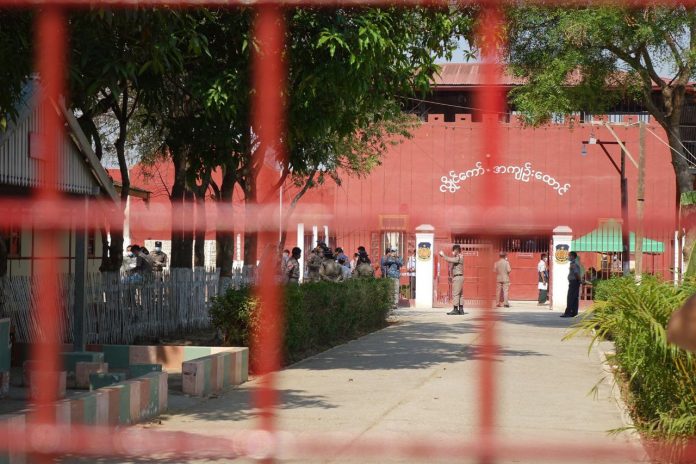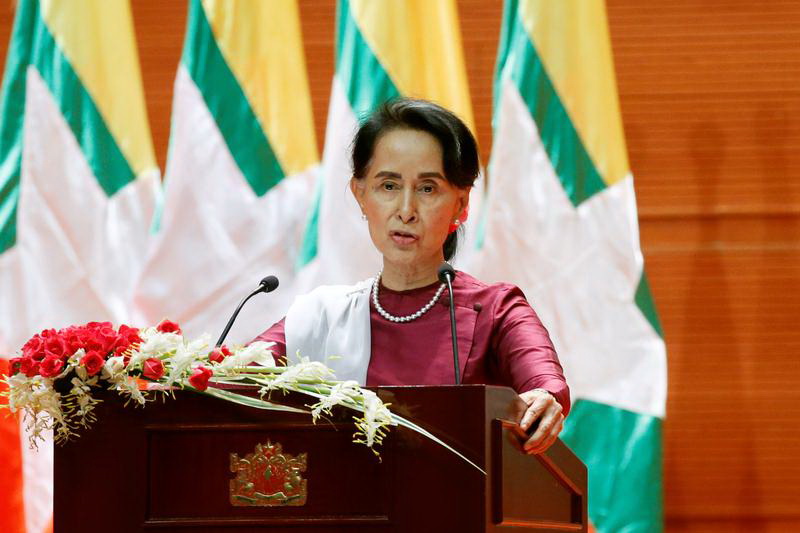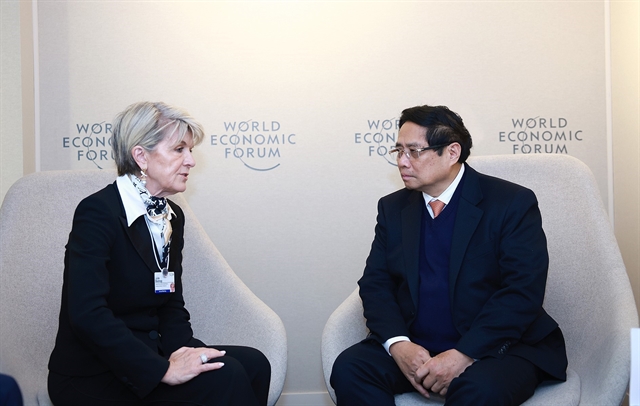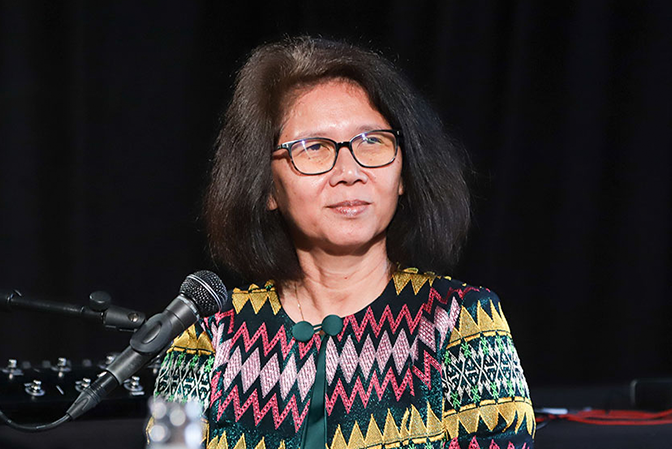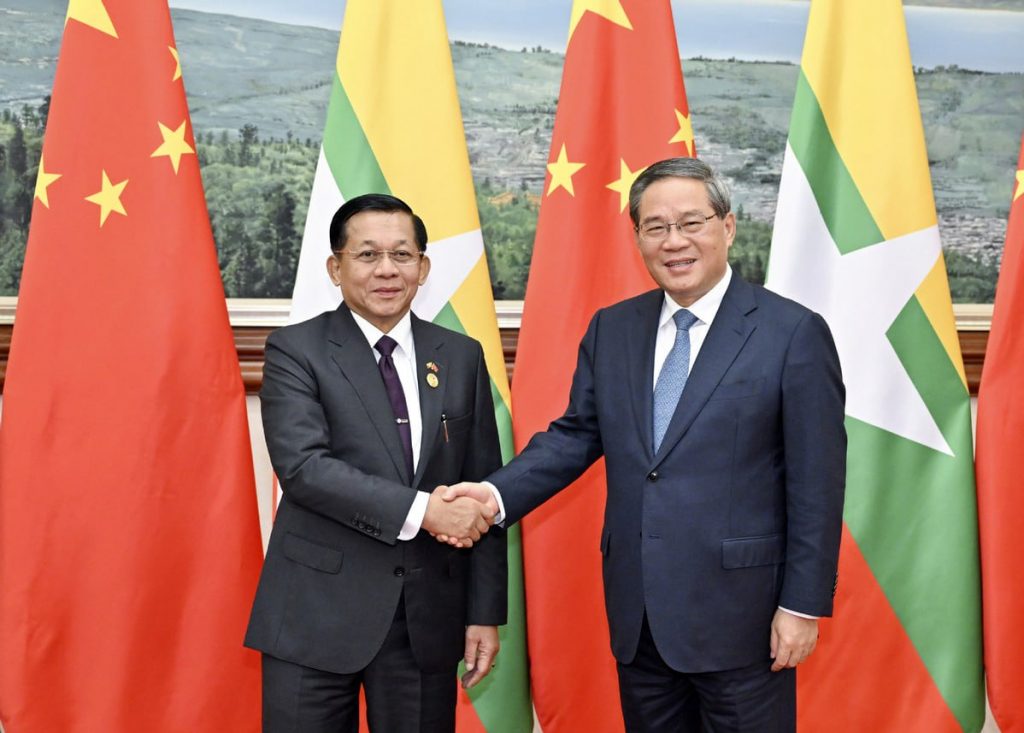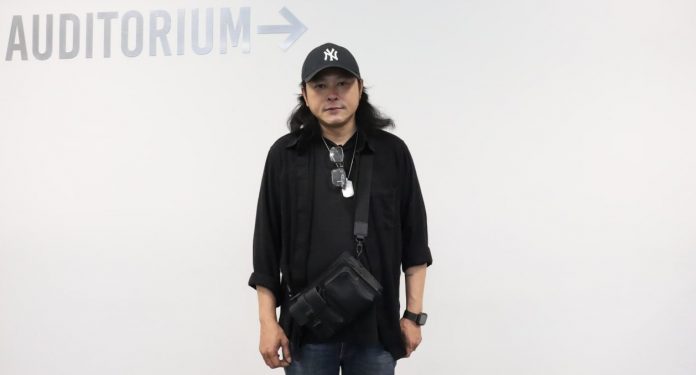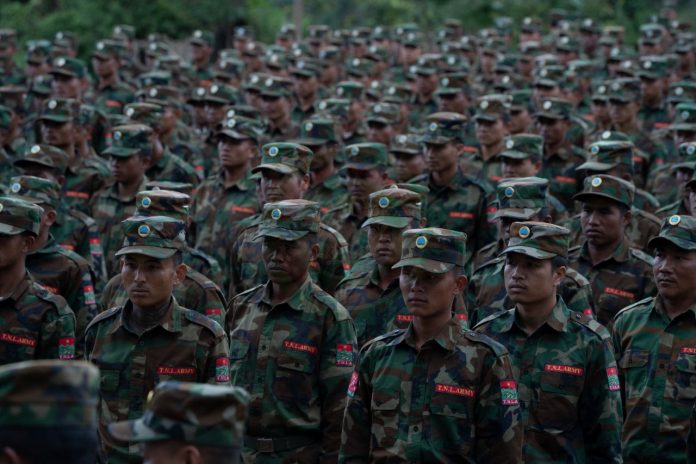Guest contributors
Alan Clements & Fergus Harlow
Myanmar is in freefall. Since the military coup in 2021, the country has plunged into unrelenting chaos: widespread atrocities, thousands of lives lost, and over two million people displaced.
Attempting to obliterate democracy itself, a brutally oppressive junta has compounded the systematic dismantling of democratic institutions with the imprisonment of all elected leaders—Aung San Suu Kyi, President Win Myint, cabinet ministers, and over 21,000 prisoners of conscience.
Yet, amid the horrors of this harrowing landscape, many critics choose to target not the architects of this tragedy, the junta, but its most prominent victim.
Benedict Rogers’ recent article, “The world must end its silence on Aung San Suu Kyi” in Union of Catholic Asian News on Jan. 17 indulges in distorted half-truths.
Despite his so-called good intentions, Rogers casts Aung San Suu Kyi as the villain in a tragedy engineered by the very junta she has consistently opposed.
This is not journalism—it’s the rhetorical equivalent of lighting a pyre beneath a woman enduring her 19th year of imprisonment, in her fourth concurrent year in solitary confinement, and calling it justice.
Mainstream news has taken to calling Myanmar a “forgotten country,” but a documentary from The Independent last December reveals a country not forgotten but deliberately ignored.
Some lament the fall of “the one democratic hope that Burma had,” her betrayal by those who unreasonably expected a saint and then abandoned her when sullied by realpolitik.
“Some journalists I speak to now admit they got it wrong about my mother,” explains Aung San Suu Kyi’s son, Kim Aris, featured prominently in the film, talking to us before its release.
Research from organizations like Care International charts a clear relationship between Western reporting, exacerbated sectarian violence, and increasing nationalism.
As Sir John Jenkins, former U.K. ambassador to Myanmar, explains in the documentary, Suu Kyi’s abandonment by her ‘international friends’ during the Rohingya crisis enabled the military to launch its 2021 coup d’état.
The Hague defense: A tightrope over an abyss
Labeling Suu Kyi’s 2019 defense of Myanmar at The International Court of Justice (ICJ) as a “defense of the military” by a “genocide apologist” carries as much weight as a shadow on a sidewalk.
She undertook a delicate legal and diplomatic defense of her country, at a time when abandoning internal judicial processes to international intervention would have made things worse.
International observers stubbornly failed to frame sectarian violence as inter-communal, ignoring the reality that condemnation of either Buddhist or Muslim communities would have only fanned the flames. Addressing the ICJ, Suu Kyi declared:
“Myanmar will have no tolerance for human rights abuses committed in Rakhine State and will prosecute the military if war crimes have been committed there.”
These statements were not denials of atrocities but rather acknowledgments of Myanmar’s challenges.
Her appearance at The Hague was not a declaration of complicity but an act of survival. To brand Suu Kyi a collaborator is to ignore the suffocating grip the military held over her government.
Power-sharing as “collusion”
Aung San Suu Kyi’s political philosophy emphasized peace through dialogue and non-vilification. This approach stands out as a rare strategy in a world that often divides, demonizes, and retaliates.
The insinuations of collusion dismiss Suu Kyi’s intentions and deny the reality of Myanmar’s 2008 Constitution as an instrument of military control.
Dismantling the military was never an option. The system she inherited was designed to obstruct civilian control, making incremental reform the only realistic path forward.
Critics who accuse Suu Kyi of failing to dismantle the junta’s power overlook an essential fact: dismantling the military was never an option.
The real question is not why Suu Kyi failed to dismantle the junta, but why critics are so eager to transfer blame for the military’s crimes onto her shoulders.
Attacks and the Kofi Annan Commission: A convenient omission
Any analysis of Aung San Suu Kyi’s leadership during the Rakhine State crisis that omits the brutal attacks by the Arakan Rohingya Salvation Army (ARSA) is not just incomplete; it is intentionally misleading.
These coordinated attacks by the Islamic terrorist group were a deliberate provocation. ARSA’s goal was to destabilize the region and provoke military retaliation.
The formation of the Kofi Annan Commission on Rakhine State was an extraordinary act of political courage in a country deeply fractured by ethnic divisions.
Critics often dismiss it as a public relations stunt, ignoring the commission’s real significance. Suu Kyi’s leadership during this time laid the groundwork for reconciliation.
Ignoring ARSA’s calculated provocation is akin to analyzing the horrors following October 7 in Israel without acknowledging the Hamas attacks that precipitated the escalation.
Blaming Suu Kyi for the military’s obstruction is as irrational as blaming a firefighter for the crimes of an arsonist.
The people’s mandate: A testament to resilience
Under her guidance, the National League for Democracy (NLD) became a symbol of defiant yet peaceful opposition to the junta.
By the 2020 elections, despite systemic repression, the people of Myanmar overwhelmingly entrusted Suu Kyi with their democratic aspirations.
Each vote cast for the NLD was a profound act of defiance—a declaration that the people of Myanmar refused to bow to authoritarianism.
Yet critics trivialize this victory and dismiss Suu Kyi’s leadership as a failure. Such criticism disregards the sacrifices of millions who risked their safety and livelihoods to support her vision of a free Myanmar.
The true villains: A junta that thrives on oppression
The fixation on Aung San Suu Kyi’s perceived failings obscures the crimes of the military generals, led by Min Aung Hlaing, who have orchestrated a reign of terror for decades.
These are the men who planned and executed the 2021 coup, dismantling democracy, and plunging the country into chaos.
Aung San Suu Kyi’s leadership and the NLD’s electoral victories were direct challenges to this entrenched system of terror. To criticize Suu Kyi while downplaying the junta’s crimes distorts reality.
If there is a failure to hold the military accountable, it is not Suu Kyi’s failure—it is the world’s failure to confront the true perpetrators of Myanmar’s tragedy.
Reevaluating the narrative
It is time to stop using Aung San Suu Kyi as a scapegoat for Myanmar’s suffering. Her critics—many of whom once hailed her as a beacon of hope—owe her more than criticism; they owe her an apology.
The military junta has always been the primary architect of Myanmar’s oppression. Suu Kyi, though far from a perfect leader, represented the aspirations of millions who dared to dream of freedom.
To continue vilifying her diminishes the extraordinary resilience of a nation fighting for its dignity.
A call to action
Aung San Suu Kyi’s imprisonment is not just a personal tragedy—it is a profound injustice and a betrayal of democracy itself. Her detainment symbolizes the suffocation of a nation’s hopes.
The global community must do more than demand her release; it must confront the smear campaign that has unfairly tarnished her legacy.
Let history judge Suu Kyi for what she truly is: a courageous leader who navigated impossible circumstances, a flawed yet defiant symbol of her people’s struggle, and a voice for reconciliation in a nation fractured by decades of terror.
The call is clear: #FreeAungSanSuuKyi and hold the true villains—the junta—accountable for their crimes.
Alan Clements is an author, investigative journalist, and former Buddhist monk ordained in Myanmar, where he lived for years immersed in the country’s spiritual and political landscapes. He is the author of Burma: The Next Killing Fields? and The Voice of Hope, co-authored with Aung San Suu Kyi, as well as the four-volume Burma’s Voices of Freedom and Aung San Suu Kyi From Prison and a Letter to a Dictator. His decades-long work focuses on Myanmar’s ongoing struggle for democracy, human rights, and spiritual resilience.
Fergus Harlow is a writer, scholar, and human rights advocate. He co-authored Burma’s Voices of Freedom and Aung San Suu Kyi From Prison and a Letter to a Dictator, providing an in-depth exploration of Myanmar’s political crises and the resilience of its people. Harlow’s work centers on the intersections of democracy, spirituality, and global human rights.
DVB publishes a diversity of opinions that does not reflect DVB editorial policy. We’d like to hear what you think about this or any of our stories: [email protected]


